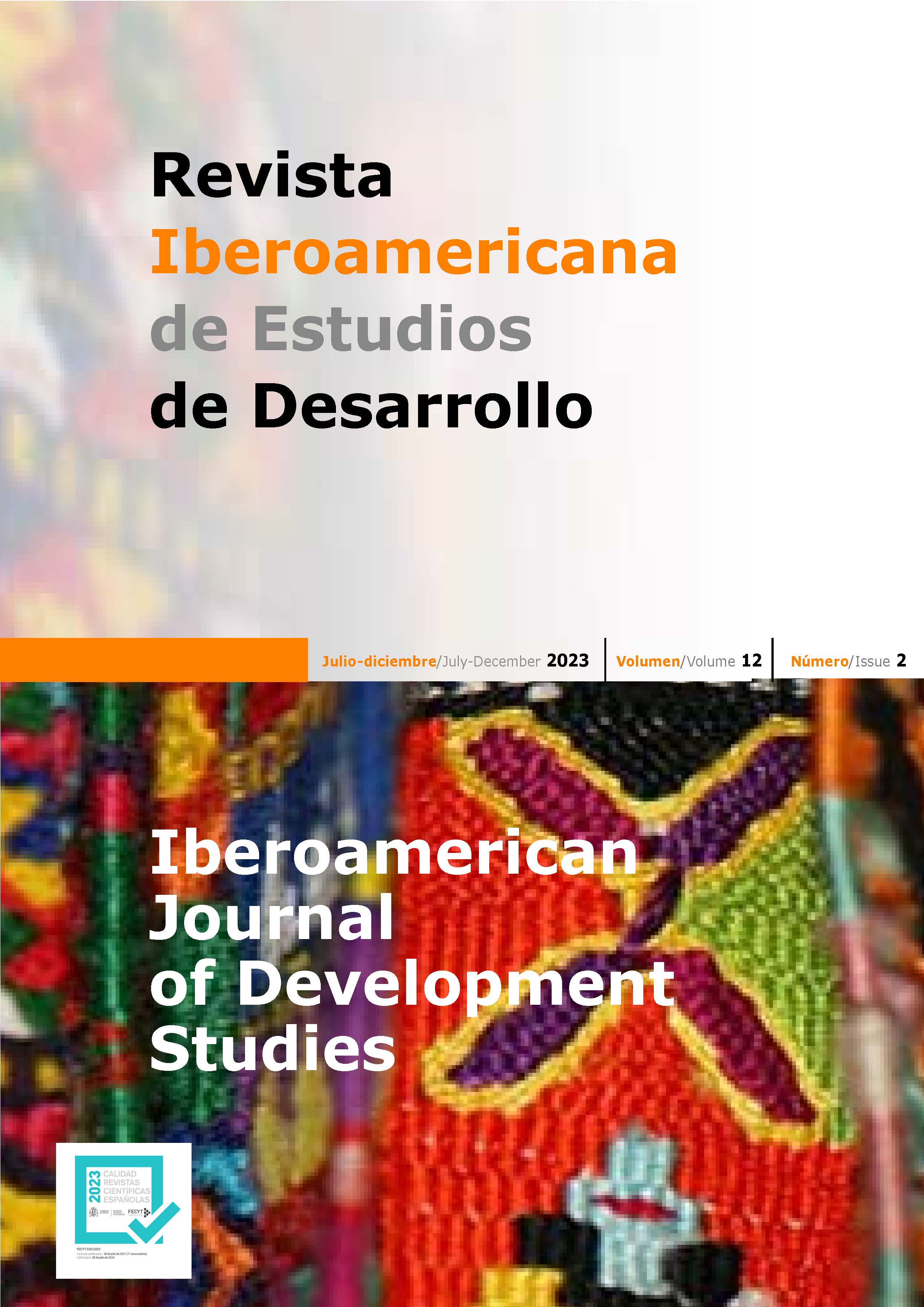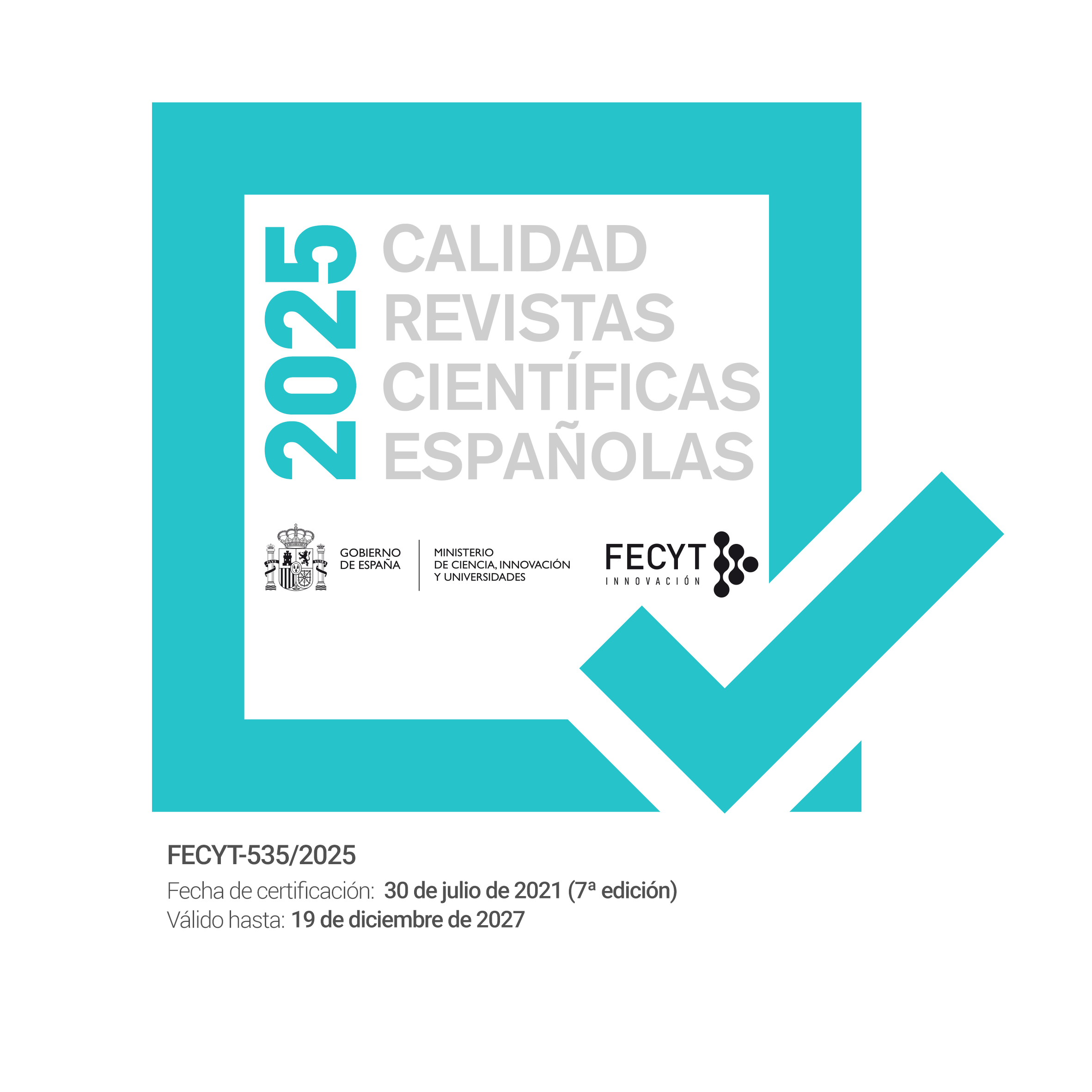What kind of sustainable development do we need?
DOI:
https://doi.org/10.26754/ojs_ried/ijds.842Palabras clave:
desarrollo sostenible, Agenda 2030, desarrollo humano, crisis global, binestarResumen
Hoy, los Objetivos de Desarrollo Sostenible (ODS) constituyen el marco de referencia principal a la hora de abordar la sostenibilidad y el desarrollo humano. Desafortunadamente, existen varios aspectos y cuestiones que se han ignorado en los ODS, o bien subestimado, que pueden convertirse en serios obstáculos para su éxito. Entre ellos, las dimensiones éticas, culturales y espirituales de la vida humana parecen haberse desvanecido en el olvido. Sin estas dimensiones, los ODS pueden convertirse en una especie de estrategia de resolución de problemas bien intencionada, mas ciega, en la que se ignoran las razones de la crisis que se desea corregir. Dicha ausencia es clara cuando se examina el vocabulario utilizado en los ODS y resulta más evidente cuando se compara con el lenguaje empleado en otras conocidas declaraciones internacionales sobre el mismo tema. Sacar a la luz esta carencia abre la posibilidad de que los ODS revisen las estrategias con las que podrían ser más efectivos a la hora de perseguir sus propósitos en los próximos años.
Descargas
Referencias
ANCHORAGE (2009). The Anchorage Declaration. https://unfccc.int/resource/docs/2009/smsn/ngo/168.pdf, accessed December 1, 2022.
ANNETT A, SACHS J, VENDLEY W (2017). The Significance of Laudato si’. Paulist Press, Mahwah (New Jersey).
ARIAS-ARÉVALO P, GÓMEZ-BAGGETHUN E, MARTÍN-LÓPEZ B, PÉREZ-RINCÓN M (2018). Widening the Evaluative Space for Ecosystem Services: A Taxonomy of Plural Values and Valuation Methods. Environmental Values 27(1):29-53.
BASART JM (2021). Environmental Ethics. When Human Beings and Nature Are Not Two. In: Taskiran MN, Pinarbaşi F (eds.). Multidisciplinary Approaches to Ethics in the Digital Era. IGI Global, Hershey (Pennsylvania), pp. 16-34.
BOROWY I (2017). Sustainable Development and the United Nations. In: Caradonna JL (ed.). Routledge Handbook of the History of Sustainability. Routledge, London, pp. 151-163.
BRISMAN A (2011). Stockholm Conference, 1972. In: Chatterjee DK (ed.). Encyclopedia of Global Justice. Springer, Dordrecht, pp. 1039-1040.
BURFORD G, HOOVER E, VELASCO I, JANOUSKOVÁ S, JIMENEZ A, PIGGOT G, PODGER D, HARDER MK (2013). Bringing the «Missing Pillar» into Sustainable Development Goals: Towards Intersubjective Values-Based Indicators. Sustainability 5(7):3035-3059.
CARSON R (1965). The Sense of Wonder. Harper & Row Publishers, New York.
CLUGSTON R (2016). The Earth Charter, Spirituality and Sustainable Development. Institute of Oriental Philosophy Journal 26:155-170.
DAHL AL (2012). Achievements and gaps in indicators for sustainability. Ecological Indicators 17:14-19.
DHIMAN K (2016). Ethics and Spirituality of Sustainability: What Can We All Do? The Journal of Values-Based Leadership 9(1). https://scholar.valpo.edu/jvbl/vol9/iss1/11, accessed December 1, 2022.
EC (2000). Earth Charter. https://earthcharter.org/read-the-earth-charter/, accessed December 1, 2022.
ELHACHAM E, BEN-URI L, GROZOVSKI J, BAR-ON YM, MILO R (2020). Global human-made mass exceeds all living biomass. Nature 588:442-444.
FIFE W (2020). The Importance of Counting for Qualitative Research. In: Counting as a Qualitative Method. Palgrave Pivot, Cham.
GREENE HF (2013). The Ethics and Spirituality Initiative in Connection with the United Nations Sustainable Development Process. Tattva Journal of Philosophy 5(1):1-35.
HOLDEN E, LINNERUD K, BANISTER D, SCHWANITZ VJ, WIERLING A (2018). The Imperatives of Sustainable Development. Routledge, New York.
JAMES SP (2016). The trouble with environmental values. Environmental Values 25(2):131-144.
JARVIE ME (2016). Brundtland Report. Encyclopedia Britannica. https://www.britannica.com/topic/Brundtland-Report, accessed December 1, 2022.
KALS E, MAES J (2002). Sustainable Development and Emotions. In: Schmuck P, Schultz WP (eds.). Psychology of Sustainable Development. Springer, Boston (Massachusetts), pp. 97-122.
KAPUR R (2015). Approaches and Strategies for Holistic Social Development. Arts and Social Sciences Journal 6(3). https://www.hilarispublisher.com/open-access/approaches-and-strategies-for-holistic-social-development-2151-6200-1000119.pdf , accessed December 1, 2022.
KARI-OCA-1 (1992). Kari-Oca Declaration. http://nafaforestry.org/ff/download/kari_oca.pdf, accessed December 1, 2022.
KARI-OCA-2 (2012). Kari-Oca 2 Declaration. https://www.ienearth.org/kari-oca-2-declaration/, accessed December 1, 2022.
KEEBLE BR (1988). The Brundtland Report: Our Common Future. Medicine and War 4(1):17-25.
KEITSCH M (2018). Structuring Ethical Interpretations of the Sustainable Development Goals Concepts, Implications and Progress. Sustainability 10(3):829.
KONIK I (2018). Ubuntu and Ecofeminism: Value-Building with African and Womanist Voices. Environmental Values 27(3):269-288.
KOPNINA H (2016). The victims of sustainability: a challenge to sustainable development goals. International Journal of Sustainable Development & World Ecology 23(2):113-121.
KOTHARI A, DEMARIA F, ACOSTA A (2014). Buen Vivir, Degrowth and Ecological Swaraj: Alternatives to Sustainable Development and the Green Economy. Development 57:362-375.
LS (2015). Laudato si’. http://www.vatican.va/content/francesco/en/encyclicals/documents/papa-francesco_20150524_enciclica-laudato-si.html, accessed December 1, 2022.
MARCUSE P (1998). Sustainability is not enough. Environment and Urbanization 10(2):103-112.
MARQUARDT B (2006). Historia de la sostenibilidad. Un concepto medioambiental en la historia de Europa central (1000-2006). Historia Crítica 32:173-197.
MITCHAM C (1995). The concept of sustainable development: its origins and ambivalence. Technology in Society 17(3):311-326.
MOTILAL S (2015). Sustainable development goals and human moral obligations: the ends and means relation. Journal of Global Ethics 11(1):24-31.
O’NEILL J, HOLLAND A, LIGHT A (2008). Environmental Values. Routledge, Abingdon, Oxon.
OWENS S (2003). Is there a meaningful definition of sustainability? Plant Genetic Resources 1(1):5-9.
PIKETTY T (2014). Capital in the twenty-first century. Harvard University Press, Cambridge (Massachusetts).
POOLE AK (2018). Where is goal 18? The need for biocultural heritage in the sustainable development goals. Environmental Values 27(1):55-80.
ROLSTON III H (2006). Caring for Nature: What Science and Economics Can’t Teach Us but Religion Can. Environmental Values 15(3):307-313.
SCHMIEG G, MEYER E, SCHRICKEL I, HERBERG J, CANIGLIA G, VILSMAIER U, LAUBICHLER M, HÖRL E, LANG D (2018). Modeling normativity in sustainability: a comparison of the sustainable development goals, the Paris agreement, and the papal encyclical. Sustainability Science 13:785-796.
SCHNEIDER F, KLÄY A, ZIMMERMANN AB, BUSER T, INGALLS M, MESSERLI P (2019). How can science support the 2030 Agenda for Sustainable Development? Four tasks to tackle the normative dimension of sustainability. Sustainability Science 14:1593-1604.
SEGHEZZO L (2009). The five dimensions of sustainability. Environmental Politics 18(4):539-556.
SHEPHERD DA, KUSKOVA V, PATZELT H (2009). Measuring the values that underlie sustainable development: the development of a valid scale. Journal of Economic Psychology 30(2):246-256.
SOHN LB (1973). Stockholm declaration on the human environment. The Harvard International Law Journal 14(3):423-515.
STEPHENS PHG (2016). Negotiating the Value of Values. Environmental Values 25(2):125-130.
STIGLITZ JE (2015). The great divide: unequal societies and what we can do about them. WW Norton and Company, New York.
STOKSTAD E (2015). Sustainable goals from U.N. under fire. Science 347(6223):702-703.
UN (1974). Declaration on the Establishment of a New International Economic Order. https://digitallibrary.un.org/record/218450?ln=en, accessed December 1, 2022.
UN (2000). Millennium Development Goals. https://undocs.org/en/A/RES/55/2, accessed December 1, 2022.
UN (2015). Transforming Our World: The 2030 Agenda for Sustainable Development. http://undocs.org/en/A/RES/70/1, accessed December 1, 2022.
UNCHE (1972). Declaration of the United Nations Conference on the Human Environment. http://undocs.org/en/A/CONF.48/14/Rev.1, accessed December 1, 2022.
UNESCO Thesaurus. https://vocabularies.unesco.org/browser/thesaurus/en/, accessed December 1, 2022.
WCED (1987). Our Common Future. http://undocs.org/en/A/42/427, accessed December 1, 2022.
WEBER RP (1990). Basic content analysis. Sage, Newbury Park (California).
Descargas
Publicado
Número
Sección
Licencia
Derechos de autor 2023 Josep M. Basart, Mireia Farrús, Montse Serra

Esta obra está bajo una licencia internacional Creative Commons Atribución-NoComercial-SinDerivadas 4.0.



